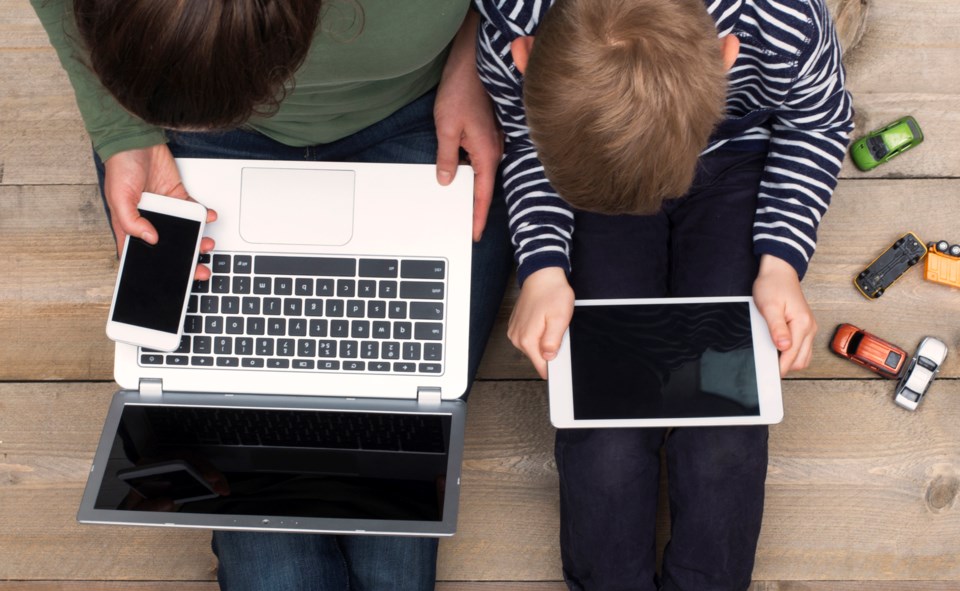THUNDER BAY - Parenting is never an easy job and as technology continues to develop to make our daily lives easier, experts say using digital devices to make parenting easier can actually harm a child’s development.
“Parents should emphasize, encourage, and nurture playtime in the real world,” said Rebecca Parlakian, senior director of programs with Zero to Three, a research organization in Washington D.C. specializing in child development.
“Arts and crafts, colouring, building with blocks, puzzles, really experiencing the world in a 3D way. Because we know it’s through this 3D exploration and person to person interaction that children are really learning,” Parlakian continued.
Parlakian will be speaking during the Thunder Bay District Health Unit’s presentation of Power Off and Play on Tuesday, where parents, caregivers, early child care experts, and educators are invited to learn more about the implications of early screen and media use on a child’s ability to learn.
According to Parlakian, there has been a huge jump in the amount of time children spend with digital devices such as smartphones, tablets, and television.
In 2011, children under the age of five-years-old spent an average of five minutes a day on mobile devices. In 2011 it jumped to 15 minutes and in 2013 it was as high as 48 minutes.
“We know that the average amount of time that children under the age of eight spend with mobile devices has tripled,” Parlakian said. “We know that children from birth to two-years-old are spending about three quarters of an hour on screens. By the time they are three to five-years-old, they are spending between about two hours a day in front of screens.”
Parents with young children today are from the millennial generation, who largely utilize digital devices and subscription streaming services. However, so much time spent on digital devices can have a variety of negative impacts on a child’s ability to learn and focus.
“A lot of the negative impacts we find for young children related to language or attention span or executive functioning, the ability to pay attention and filter out distractions,” Parlakian said. “A lot of those negative impacts we find when children are exposed to children’s television, but not educational programming.”
But studies show that it goes beyond a child’s direct participation with digital media. A television playing in the background or a text or phone call coming in on a smartphone can interrupt or distract a child, affecting his or her ability to pay attention and focus on tasks later in life.
“There was a research study that showed that when we take our attention away when we are in the middle of describing something to our child, it’s really hard for young children to keep that thread and really learn whatever we are trying to tell them,” Parlakian said. “We also know that when background television is on, parent and child interactions are significantly reduced.”
The Canadian Pediatric Society recommends that children under the age of two should not be exposed to any screen time, while for children between the ages of two to five-years-old, screen time should be kept to under an hour.
But there are other ways parents can minimize, or even help children navigate the world of digital media and screens.
“We find that when parents are jointly viewing or jointly experiencing a game or an app with their children, they are able to layer on a lot of language, they are able to help the child make sense of the game or app, they are able to make connections to the real world that helps the child transfer the learning from the 2D world of the screen to the 3D world of real life,” Parlakian said.
There is no escaping screens or digital media in today’s society, but for young children, time spent on screen is time that could be spent doing something else, such as playing, sharing stories, and interacting with the real world.
And even though parenting will never get any easier, some of the most important jobs are the most difficult.
“Screens are quiet and easy for parents and playing with toys and playing with children and having your house look like a hurricane hit it, is not always so easy,” Parlakian said. “But it is those messy bits that are rich moments for learning in a child’s life.”
Power Off and Play will be held Tuesday night at the Victoria Inn from 7 p.m. to 9 p.m.
